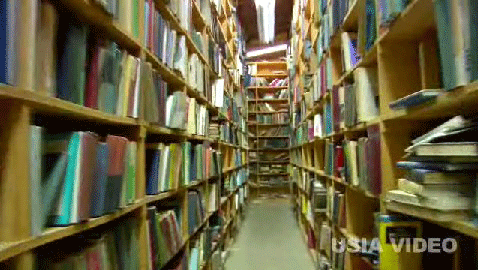90,000 Books sell at Auction: Sold!
- by Bruce E. McKinney

These books await their next chance.
In this type of mass listing business more recent publications are easier to handle than older ones. Software that scans and populates data fields based on ISBN numbers can convert an unsold book into a listing in a few seconds. ISBN numbers were introduced in the 1970's. Over the past year, marketers of large volume, low price material have increasingly employed this software not only to create the online listing but also to automatically set prices a penny lower than the lowest listed price for the same item. When multiple sellers employ the same strategy the potential for their prices to "race to the bottom" is theoretically possible. Some listing sites, to avoid this issue, now require a minimum price. Abe, for example, has a $1.00 minimum.
Adding to the complexity is the type of material that the Zobel Book Service handled: scholarly and out-of-print. The print runs of scholarly and out-of-print materials have always been relatively small so generally there may not be an abundance of copies available. On the other hand, there may also be fewer potential buyers as the material is dated. Old books get old, scholarly material may simply get out-of-date.
For those listing this material on line, the variable is time and the bet is that cost of "time" will fall further. This isn't the book business that most people think of when they think about selling books but it will play a crucial role in the dispersal of huge overstocks for at least the decade to come.
We tried to contact the buyer for an update on their plans. They contacted Mrs. Zobel after the sale but have not been in contact since.
The immediate challenge for Experienced Books will be organizing and transporting the material. According to Google there is good news and bad news. The good news is that the trip will take only 1 day and 17 hours. The bad news is that it is 2,778 miles. Google doesn't mention who the drivers are.